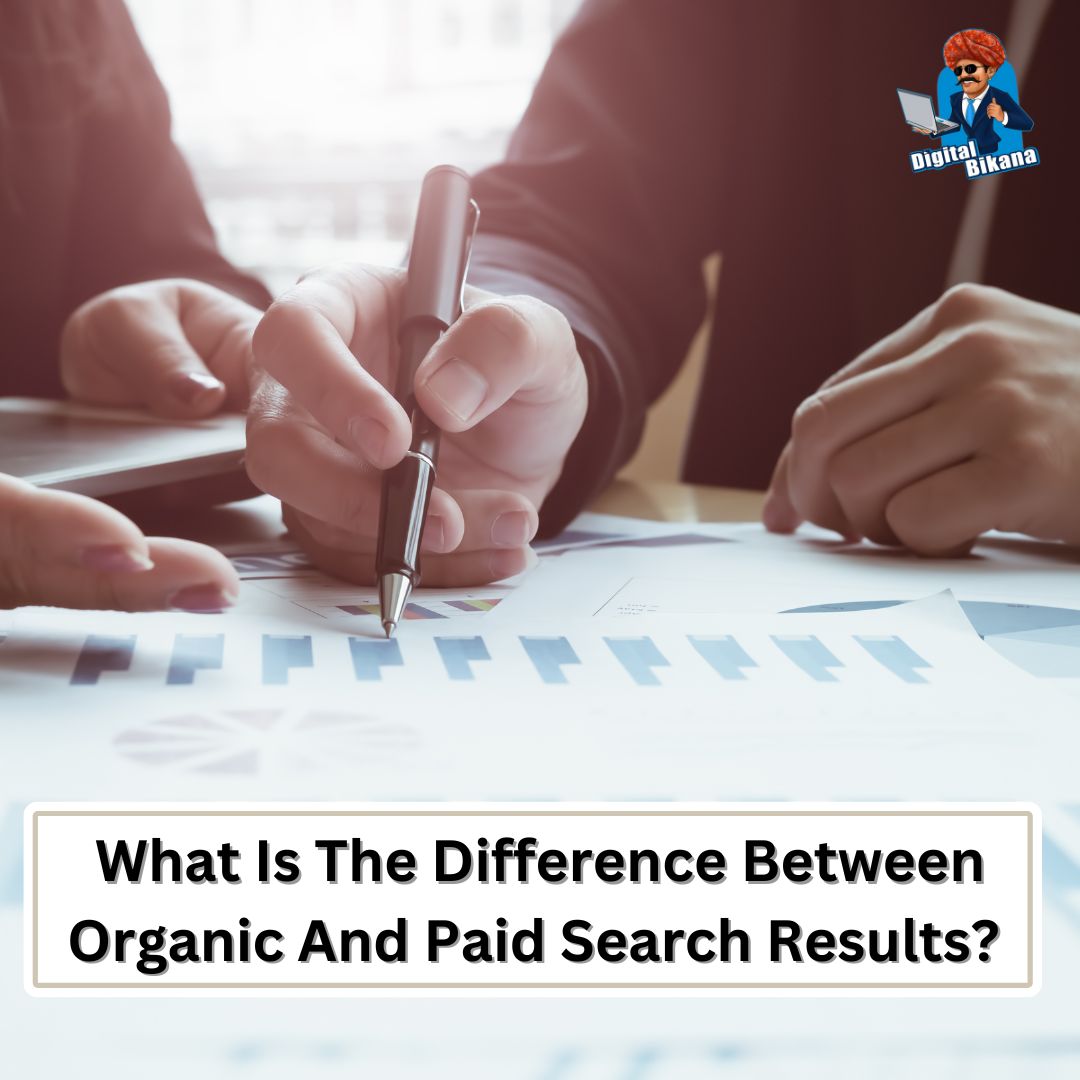What is the difference between Organic and Paid search result?
In this article we are going to talk about What is the difference between organic and paid search result? In the world of digital marketing and search engine optimization (SEO), businesses have two primary methods to gain visibility on search engine results pages (SERPs): organic and paid search results. Understanding the distinction between these two approaches is crucial for developing a comprehensive search strategy.
What is the difference between Organic and Paid search result?
This article will provide a detailed exploration of the differences between organic and paid search results, including their characteristics, benefits, considerations, and how they can be effectively utilized.
1. Organic Search Results
Organic search results are the non-paid listings that appear naturally on SERPs. They are determined by search engine algorithms based on relevancy, authority, and user experience. Organic rankings are earned through effective SEO practices and high-quality content.
Organic search results are typically displayed below any paid advertisements or featured snippets. They offer long-term visibility and credibility for businesses, as they are perceived as unbiased and authentic.
Benefits of Organic Search Results:
a. Higher trust and credibility
Organic results are considered more trustworthy since they are earned through relevance and quality.
b. Cost-effective and sustainable
While organic rankings require ongoing SEO efforts, they do not involve direct payment for placement, making them a cost-effective long-term strategy.

c. Targeted and relevant traffic
Organic rankings attract users actively seeking information or solutions related to specific search queries, increasing the likelihood of engagement and conversions.
Considerations for Organic Search Results:
a. Time and effort
Achieving top organic rankings requires consistent SEO efforts, including keyword optimization, content creation, and link building.
b. Competitiveness
Many websites compete for top organic rankings, especially for highly competitive keywords, necessitating a strategic approach and continuous improvement.
Read Also: What does SEO stands for?
2. Paid Search Results
Paid search results, also known as pay-per-click (PPC) advertising, involve businesses paying search engines to display their ads prominently on SERPs. These results are marked as “Ad” or “Sponsored” and appear above or alongside organic results. Advertisers choose specific keywords and pay when people click on their ads.
Paid search results offer immediate visibility and can quickly drive targeted traffic to a website. They provide businesses with control over their messaging and allow for precise targeting based on factors such as geographic location, demographics, and interests. Advertisers can track performance metrics and make data-driven optimizations to maximize their return on investment (ROI).
Benefits of Paid Search Results:
a. Immediate visibility and traffic
Paid ads appear prominently on search results, attracting immediate attention and driving targeted traffic to a website.
b. Precise targeting and control
Advertisers have control over ad copy, targeting options, and budget allocation, allowing for precise audience targeting and message customization.
c. Measurable results and ROI
Paid search campaigns provide detailed analytics and conversion tracking, enabling advertisers to measure performance and optimize their campaigns for maximum ROI.
Considerations for Paid Search Results:
a. Ongoing investment
Paid search requires continual budget allocation to maintain ad visibility, making it a short-term strategy with cost implications.

b. Ad fatigue and competition
Frequent ad exposure to the same audience may lead to ad fatigue, and bidding competition can increase costs for popular keywords.
c. Finding the Right Balance
While both organic and paid search results have their advantages, finding the right balance between the two is crucial for an effective search strategy.
Here are a few things to remember:
a. Goals and budget
Determine your marketing objectives and allocate budget accordingly. If immediate visibility and quick results are a priority, a paid search strategy may be more suitable. If long-term visibility, credibility, and sustainable growth are important, focusing on organic search is recommended.
b. Target audience and competition
Analyze your target audience and industry competition. Consider the search behavior of your audience and evaluate the competitiveness of keywords. This analysis can help determine the emphasis you should place on organic versus paid search.
c. Integrated approach
Combining organic and paid search efforts can yield powerful results. For example, using paid ads to complement organic rankings for highly competitive keywords can provide additional visibility and maximize your chances of attracting qualified traffic.
You can also checkout this digital marketing institute to learn digital marketing course by enrolling in our course Or Contact Digital Bikana on +91-8949483728
Conclusion:
Understanding the difference between organic and paid search results is crucial for building an effective digital marketing strategy. Organic search results offer long-term visibility, credibility, and targeted traffic through effective SEO practices. Paid search results provide immediate visibility, precise targeting, and measurable results through paid advertisements. Striking the right balance between the two approaches based on your goals, target audience, and budget is essential.
Ultimately, a comprehensive approach that integrates both organic and paid search can deliver optimal results. By leveraging the benefits of organic rankings, building a strong online presence, and complementing it with strategic paid advertising, businesses can achieve a holistic search strategy that drives traffic, engages users, and generates conversions. Regular monitoring, analysis, and optimization are key to refining your approach and maximizing the return on your marketing investment. So, Now I hope you have understood about What is the difference between Organic and Paid search result?

